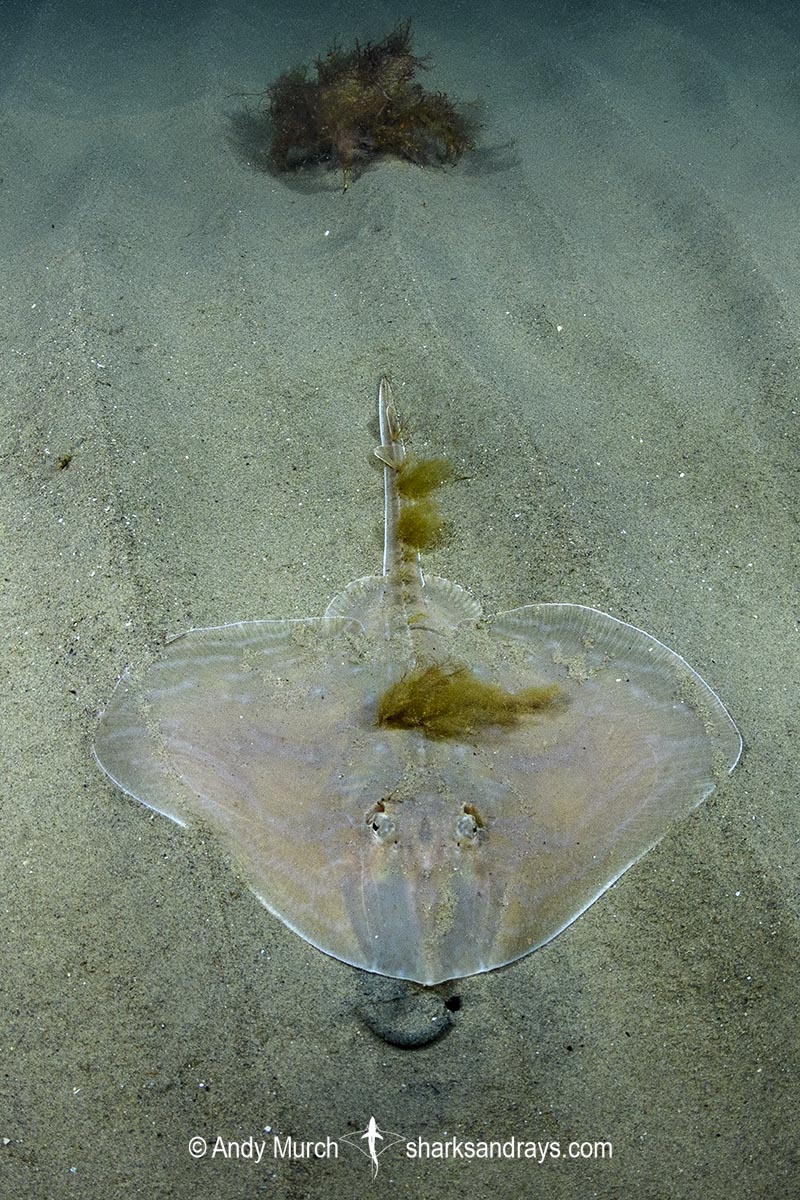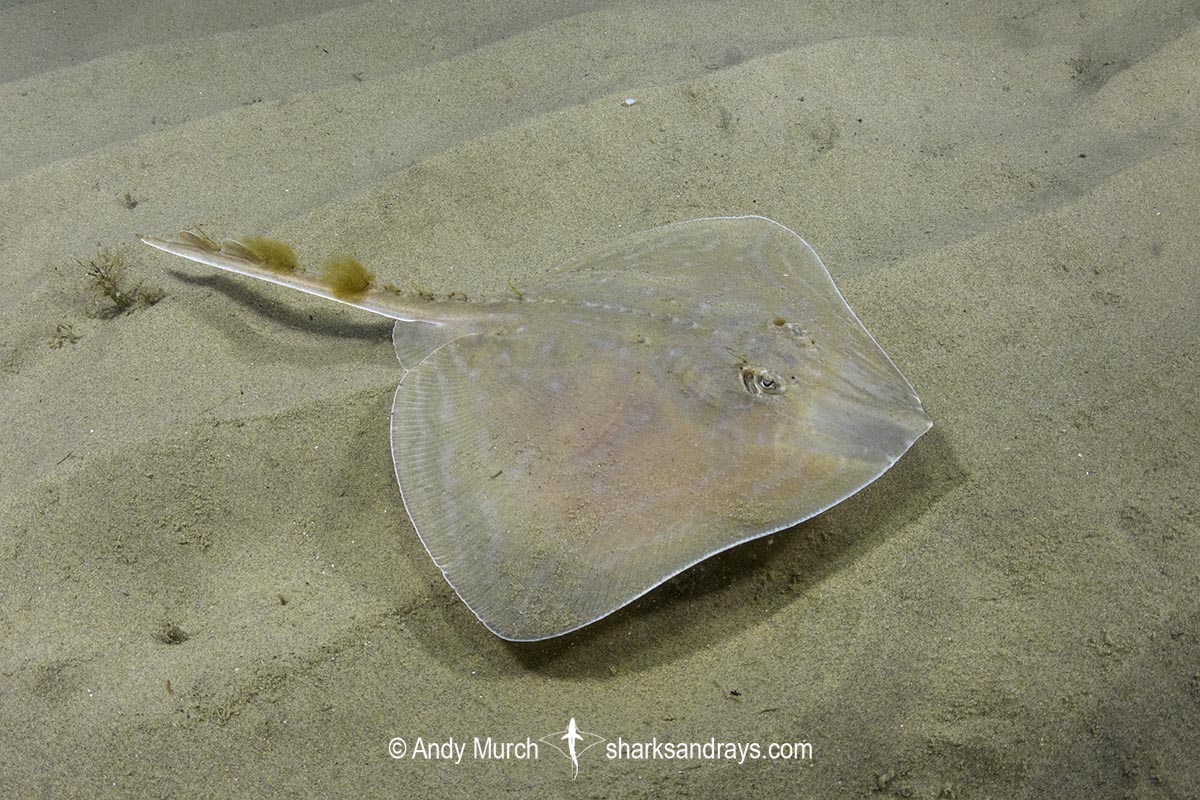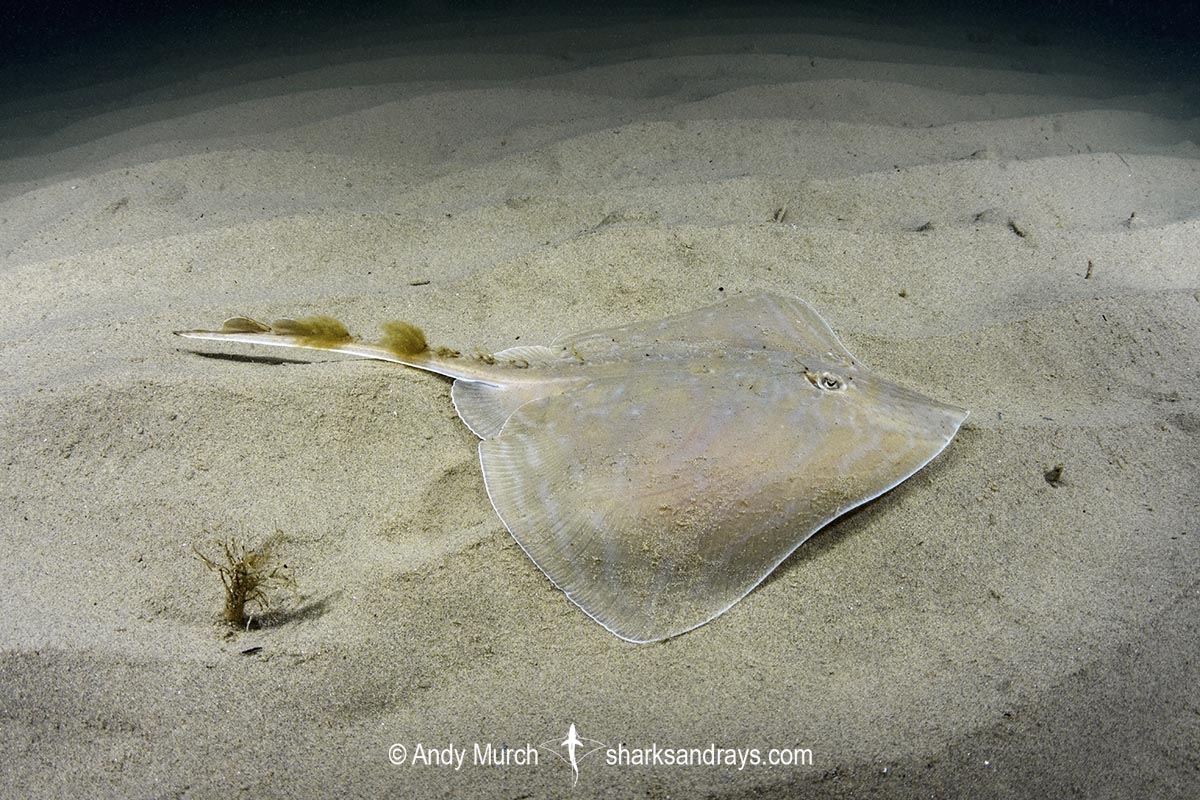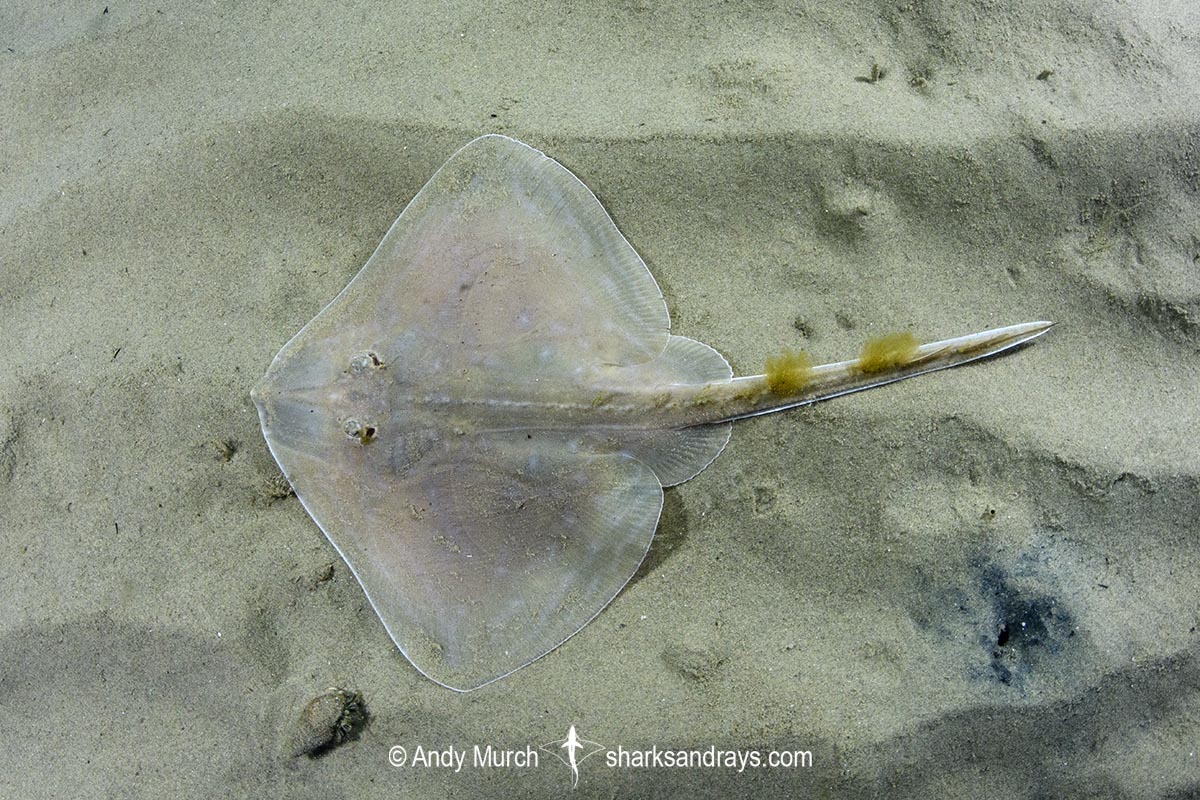Common names
Smalleyed Skate, Small-eye Skate, Smalleyed Ray (UK).
Binomial
Raja microocellata.
Synonyms
Raia microocellata, Raja microcellata.
Identification
A medium-sized skate with a kite-shaped disc. Disc width ~1.4 x disc length. Snout moderately long, anterior angle obtuse or broadly rounded, with a small protruding tip. Eyes notably small. Anterior margins of pectoral fins undulate. Pectoral apices narrowly rounded. Disc covered in small prickly thorns. Three nuchal thorns and approximately 50 midline thorns from shoulder to first dorsal fin. Midline thorns between dorsal fins absent. Pronounced lateral row of thorns on sides of tail. Pelvic fins relatively large, weakly notched. Tail narrow, approximately 50% of total length. Dorsal fins with broadly rounded margins, closely spaced near tip of tail. Caudal fin very low.
Colour
Dorsum grey-brown to olive brown, with dark edged, pale stripes running parallel to anterior and posterior disc margins, and irregular dark-edged pale blotches closer to disc centre. Rostral cartilage pale. Tail unmarked, pale laterally. Dorsal fins greyish brown. Ventrum white. Ventral disc margin dusky.
Size
Maximum length 103cm. Length at hatching 10-13cm.

Conservation Status
NEAR THREATENED
The Smalleyed Skate has a very limited geographic and depth range compared to other skate species in the region. Although recorded as far south as the Western Sahara, it is mostly confined to fragmented populations in the UK and southwestern Europe, with the only abundant populations occurring in the Bristol Channel, UK and Bertheaume Bay, France. Consequently, it is vulnerable to declines caused by over-fishing and habitat degradation.
Raja microocellata is caught as bycatch in trawl and set net fisheries, mostly in the south of England where it is retained and commercially exploited.

Habitat
Temperate seas. Demersal on sand, mud, gravel, and mixed substrates. Occurs inshore, in shallow bays and on slopes down to 110m. Larger individuals tend to be further from shore.
Distribution
The smalleyed skate is found in the eastern North Atlantic from the UK to the Western Sahara. Absent from the Mediterranean.
Reproduction
Oviparous. Up to 61 egg cases deposited annually.
Diet
Mainly crustaceans and small bony fishes. Juveniles feed on small crustaceans and mollusks.
Behavior
In the UK, Juvenile smalleyed skates are found in very shallow bays. Adults occur in deeper water.
Reaction to divers
Easy to approach. Remains motionless relying on camouflage unless harassed.
Diving logistics
The smalleyed skate is fairly common at dive sites on the south coast of England. Adults are regularly encountered at Chesil Beach and on dives around Swanage. Juveniles can be reliably encountered at night in Newtons Cove in Weymouth, and likely in many other small, protected bays on the south coast.
What’s new
View our full list of updates
Similar species
Thornback Skate Similarly shaped but usually with a more intricate pattern and markings that run perpendicular to the disc margin, and distinct banding on tail.










